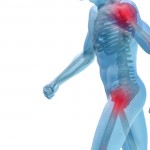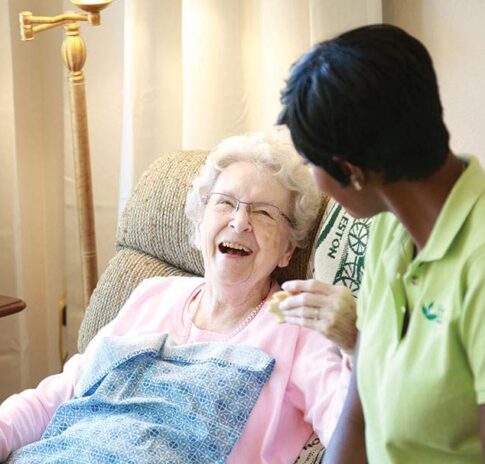 Millions of Americans age 65 and older suffer from a condition called osteoporosis, which weakens the bones and makes them more likely to fracture.
Millions of Americans age 65 and older suffer from a condition called osteoporosis, which weakens the bones and makes them more likely to fracture.
As people age, their bones become more brittle, and fractures could lead to great pain, loss of mobility or force people into assisted living. Fractures can also require surgery, such as hip replacement, which can lead to additional complications.
Maintaining bone health is also important because osteoporosis is a disease that sneaks up on people and often times has no symptoms until a fracture occurs.
Adopting healthy personal habits is important for people to avoid having brittle bones and protect themselves from the consequences of poor bone health.
1. Get Enough Calcium and Vitamin D
Eating right is extremely important to maintaining strong bones. Calcium consumption is important to reduce vulnerability to osteoporosis. Calcium is found in dairy products, vegetables like broccoli and kale. Many foods like orange juice, nuts and tofu are often enriched with calcium.
Vitamin D is also important because it helps the body absorb calcium. Sunlight helps the body create vitamin D, but there are also food sources like salmon, eggs and liver.
If eating all of those healthy options sounds like a bummer, there are lots of other options available. The variety of bone-healthy meals seems endless. Here are some ideas:
- Honey glazed salmon: Salmon fillets are a great source of vitamin D and don’t take much preparation.
- Wheat pasta with sun-dried tomatoes: Wheat pasta provides calcium.
- Macaroni and cheese: This comfort food can be made healthier by using whole wheat macaroni and low-fat cheese.
- Apricot and yogurt parfait: Just in case you’re craving a calcium-rich desert.
2. Cut out Drinking and Smoking
Lifestyle choices beyond diet also influence bone health. For instance, there are studies that show a correlation between tobacco use and decreased bone density. It’s important to know that smoking does have an impact:
- The longer a person smokes, the higher the risk of fractures in old age.
- Smokers take longer to heal from a fracture.
- Secondhand smoke may increase a person’s risk of low bone mass.
- Quitting smoking may reduce the risk of fracture.
Chronic alcohol consumption is also linked with an increase of bone fracture. Alcohol interferes with calcium balance in the body and affects hormones and vitamins, which are healthy for bones. Alcohol can also disrupt someone’s balance and cause them to fall, which can also lead to fractures.
3. Exercise to Increase Bone Density and Strength
Bone is similar to muscle in that it becomes stronger in response to exercise. People who exercise at young ages achieve greater bone mass, and regular exercise allows people to maintain strength, coordination and balance, which can prevent falls.
People who dislike exercising may not realize that there are a variety of physical activities they can do to help build bone strength. Activities include weight training, walking, hiking, jogging, dancing, tennis and stair climbing. Exercises that force a person to bear weight and work against gravity work better at building strong bones.
Before beginning an exercise program, a person should consult with their doctor to find out which ones are safest for them to try. The goal is to get in at least a half hour most days, if not daily.
4. Get a Bone Density Test
A bone density test will tell seniors if they have normal bone density or if they are at risk of breaking a bone. It can help your doctor determine how likely you are to break a bone and take measures to help prevent doing so. Doctors can also determine if things their patients are doing to promote good bone health are working. People who should think about bone density tests are:
- Woman 65 or older and men 70 or older
- Menopausal women or post-menopausal women
- Anyone who has broken a bone after age 50
Bone density tests are painless, non-invasive and quick. Tests involve an X-ray machine. A person needs a prescription to have the procedure done.
5. Avoid Falls
The best way to avoid a fracture is by avoiding a fall. While that is easier said than done, there are things seniors can do in their everyday lives to reduce the risk:
- Have eyes checked and keep eyeglass prescriptions up to date.
- Keep rooms free of clutter.
- Remove slippery rugs or carpets.
- Wear shoes with rubber soles and great traction.
Seniors should do everything they can to protect their bone health.
Although there is no cure for osteoporosis, it can be treated and prevented. There are also medicines on the market that doctors can prescribe, but they may come with side effects.
Sometimes the solution to a problem can cause problems in itself. For example, hip replacement may be required after a hip fracture, but some hip implants can cause complications.
Hundreds of people have filed lawsuits against Stryker after a hip implant caused them additional injuries.
The best plan is to build strong bones and thus avoid fractures and surgery. When it comes to bone health and fractures, prevention is definitely the best medicine.
Julian Hills has been a staff writer for Drugwatch since 2013. He has a background in newspaper and television journalism. He studied Communication and English at Florida State University.
